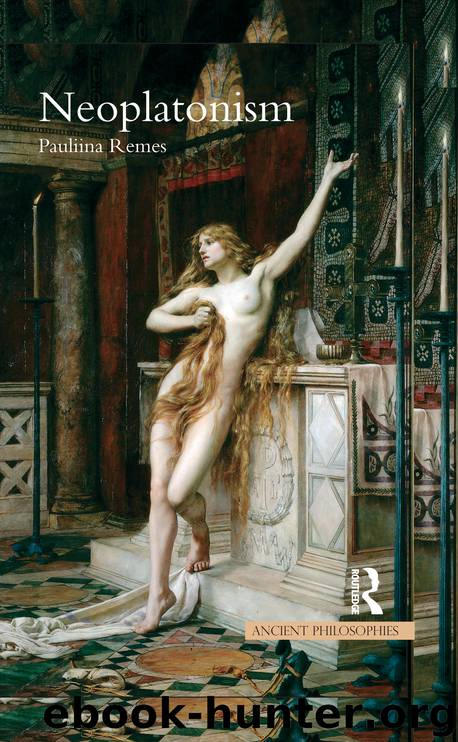Neoplatonism by Remes Pauliina

Author:Remes, Pauliina [Pauliina Remes]
Language: eng
Format: epub
ISBN: 9781317492887
Publisher: Taylor and Francis
In all fairness, Augustine is not entirely sensitive to the details of the theory under attack. For the Neoplatonist, the doctrine of reincarnation does not mean that a human person with a particular life history would be reincarnated; in reincarnation, the souls lose most if not all of their individual memories as well as those of their characteristics closely connected to the particular bodies they have incarnated in previous lives. Strictly speaking, then, whatever reincarnates is not anyone’s mother or son in any meaningful sense. Yet this defence has its price; if that which goes through the cycle of reincarnation and finally ascends to the highest is not a person, the doctrine of the immortality of the soul in question holds no, or virtually no, promise of personal survival, and thereby offers also no consolation. Although Socrates does propound the theory of the immortality of the soul as a kind of consolation to his friends in the Phaedo, the central motivation of Platonist views around these issues should probably be sought elsewhere, within epistemological and metaphysical domains. Yet one might add that the kind of consolation the reincarnation theory perhaps manages to put forward is cosmic in character. According to this theory, the fact that virtue may not be rewarded nor vice be punished in this life does not mean that the cosmos is not beautifully organized. In the course of time, the inequitable features are smoothed out by providential supervision. This simply takes more than one lifetime to happen.
The human soul’s propensity to actualize different rational principles is not just a technical tool used to accommodate the doctrine of incarnation derived from Plato’s dialogues. It also testifies to the extraordinary dynamism the Neoplatonists see in human nature. Unlike the rest of the universe, the human soul is not a prisoner of any one form or way of looking at the world. It is the possibility of everything else, of a supple realization of the hypostases, species, formations and properties of various kinds. Not all of these opportunities are equally good, but in one way or another they exist within us. In the words of Iamblichus:
the soul seems to have in itself all kinds of essences and activities, all kinds of principles, and forms in their entirety. Indeed, to tell the truth, while the soul is always limited to a single, definite body, it is, in associating itself with the superior guiding principles, variously allied to different ones.
(On the Mysteries of the Egyptians, II.2 [= Dillon & Gerson 2004: 228])
Download
This site does not store any files on its server. We only index and link to content provided by other sites. Please contact the content providers to delete copyright contents if any and email us, we'll remove relevant links or contents immediately.
The remains of the day by Kazuo Ishiguro(8962)
Tools of Titans by Timothy Ferriss(8359)
Giovanni's Room by James Baldwin(7313)
The Black Swan by Nassim Nicholas Taleb(7097)
Inner Engineering: A Yogi's Guide to Joy by Sadhguru(6782)
The Way of Zen by Alan W. Watts(6589)
Asking the Right Questions: A Guide to Critical Thinking by M. Neil Browne & Stuart M. Keeley(5751)
The Power of Now: A Guide to Spiritual Enlightenment by Eckhart Tolle(5741)
The Six Wives Of Henry VIII (WOMEN IN HISTORY) by Fraser Antonia(5493)
Astrophysics for People in a Hurry by Neil DeGrasse Tyson(5172)
Housekeeping by Marilynne Robinson(4433)
12 Rules for Life by Jordan B. Peterson(4298)
Double Down (Diary of a Wimpy Kid Book 11) by Jeff Kinney(4257)
The Ethical Slut by Janet W. Hardy(4235)
Skin in the Game by Nassim Nicholas Taleb(4232)
Ikigai by Héctor García & Francesc Miralles(4229)
The Art of Happiness by The Dalai Lama(4118)
Skin in the Game: Hidden Asymmetries in Daily Life by Nassim Nicholas Taleb(3986)
Walking by Henry David Thoreau(3949)
